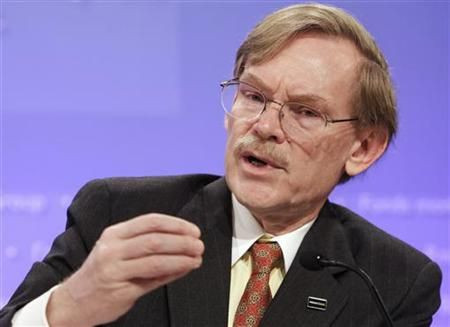Obama to Name World Bank Head as Zoellick's Term Ends

President Obama is expected to appoint a replacement soon for outgoing World Bank President Robert Zoellick, who's leaving after the administration decided not to reappoint him to a second five-year term.
The departure of Zoellick, a Republican appointed by President George W. Bush in 2007 and whose term ends June 30, has triggered speculation about possible replacements, The Wall Street Journal reported Wednesday.
Among names being floated are Secretary of State Hillary Clinton and former White House economic advisor Larry Summers.
The search for a replacement to Zoellick, 58, is being conducted by Treasury Under Secretary Lael Brainard.
The World Bank, which now has more than 9,000 employees in more than 100 offices worldwide, was formed in 1944 at a conference in Bretton Woods, N.H., to reduce poverty and support economic development. It comprises two organizations, the International Bank for Reconstruction and Development and the International Development Association.
The International Monetary Fund was formed in the same Bretton Woods meeting but focuses on international monetary cooperation and makes loans to countries so they can solve balance of payments problems, according to its Web site.
Although the World Bank's leadership is international, the U.S. has traditionally controlled appointments to its top posts; Europeans, on the other hand, have traditionally led the IMF.
Zoellick's tenure at the World Bank covered a period of shifting geopolitical challenges and opportunities. The institution had its first capital increase in more than 20 years under his leadership and extended a record $247 billion to help build roads, bridges and other types of infrastructure.
The Bank has recognized that we live in a world of multiple poles of growth where traditional concepts of the 'Third World' are now outdated and where developing countries have a key role to play as growth drivers and responsible stakeholders, Zoellick said in a statement.
At the same time, we've scaled up our support to poor people, countries, and communities and shown that the bank can be an indispensable innovator, catalyst, and driver of a modernized multilateralism.
© Copyright IBTimes 2024. All rights reserved.





















